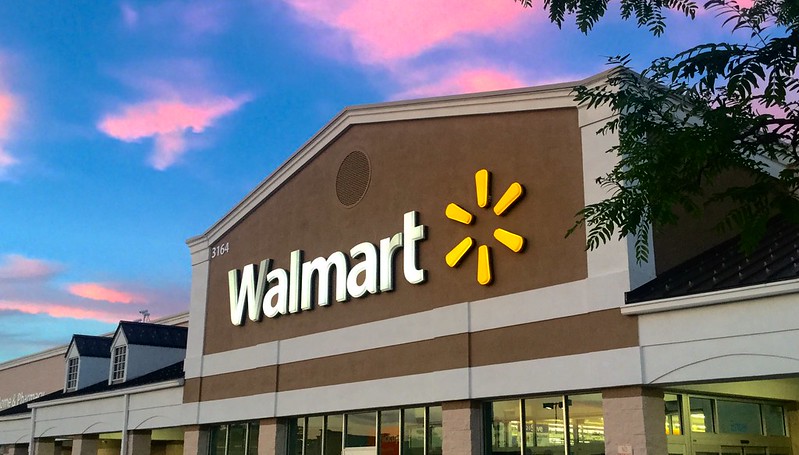U.S. News
Independent Grocers Demand Antitrust Enforcement to Challenge Walmart’s Market Power

Clear Facts
- The National Grocers Association (NGA) advocates for the enforcement of antitrust laws to improve competition and consumer outcomes.
- Chris Jones of NGA highlights that large firms like Walmart dominate the market, influencing supplier pricing.
- The Robinson-Patman Act, which aims to prevent price discrimination, is suggested as a solution to level the playing field.
A trade group representing independent grocery stores is urging lawmakers and regulators to enforce existing antitrust laws to enhance competition and benefit consumers, rather than focusing on alleged “price gouging.”
The National Grocers Association (NGA), which represents independent, family-owned, and employee-owned grocers and wholesalers, believes that enforcing these laws would address pricing competition more effectively. Chris Jones, NGA’s chief government relations officer and counsel, emphasized that supplier pricing is a significant challenge for their members when competing with larger rivals.
“You’ve got a handful of really large, dominant firms in this country who have a lot of power in the market,” Jones stated.
“Walmart being the biggest fish in the sea… they’re pretty close to 30% of sales in this country, over $300 billion in food sales in a $1 trillion market.”
Jones pointed out that Walmart’s dominance allows it to secure more favorable pricing from suppliers. He also mentioned the proposed Albertsons-Kroger merger, which is currently under antitrust scrutiny, as evidence that these companies feel the need to merge to compete with Walmart.
“I think what’s been fascinating about watching the arguments in this Albertsons-Kroger case, it kind of confirms what we have been talking about all along,” Jones explained.
“They are getting bigger because that’s the only way that they can compete with Walmart.”
Jones warned that this merger could lead to less favorable outcomes for smaller players in the market.
“But what does that mean for everybody else in the marketplace? It means that there are two big buyers squeezing the supplier, and all that’s going to mean for us is we’re going to get even less favorable outcomes on price, on availability, on deals, on promotions,” he added.
Jones sees the proposed merger as a significant threat to independent grocers.
“I think the problem shouldn’t be solved through a large merger. It should be solved through the enforcement of laws that are supposed to limit the ability of Walmart to use its coercive power.”
He referred to the Robinson-Patman Act, which aims to prevent sellers from charging different prices to competing buyers for the same commodity.
“This kind of price discrimination may give favored customers an edge in the market that has nothing to do with their superior efficiency,” the Federal Trade Commission (FTC) notes on its website.
Although the Department of Justice stopped enforcing the Robinson-Patman Act in 1977 and the FTC hasn’t brought a case under the law since 2000, there has been recent interest in revitalizing its enforcement.
Jones also addressed allegations of grocery price gouging, such as those in Vice President Harris’ economic platform.
“We don’t believe it’s happening. It’s a very specific term that probably plays well in the polls,” he said.
Jones urged policymakers to focus on enforcing antitrust laws rather than rhetoric.
“What happens when a major political candidate goes out there and accuses the food and grocery industry of gouging consumers, it really kind of confirms people’s priors,” he said.
He explained that such accusations negatively impact independent grocers, who already face higher costs and retail prices.
“It’s had this really kind of negative effect on how consumers view us, and it’s really upset our members who are, because of this margin compression, they’re really doing everything they can to serve their communities,” Jones explained.
“So we think it’s price competition that’s the problem and price discrimination, not price gouging.”
Let us know what you think, please share your thoughts in the comments below.

mountainman
September 7, 2024 at 9:26 am
I go to Walmart because it carries products that I need while most do not. If you want to be competitive maybe you should watch what people buy at walmart and see if you carry that product then maybe you might understand why people shop at Walmart.
Mary Harris
September 7, 2024 at 11:33 am
I don’t know where the problem lies, but I believe walmart is sqeezing out the competition in certain areas. I also believe they treat their employees poorly. Their should be an effort to unionize them without fear of retribution from the company. I hear they keep most of their employees on part-time status to keep from paying them benefits. Thus forcing them to get snap benefits and medicaid. So, if that is the case, the tax payers are paying for walmart employee benefits while they are making billions in profits.
Temper
September 7, 2024 at 6:27 pm
It sounds like, because Walmart is a bigger store and can order more of the same product to sell at a less expensive price than you can give the customer, you want to regulate what they can do! (and i thought the american way was competition and if you can’t run the race, you do your best..you dont weigh down your opponent in the race!)